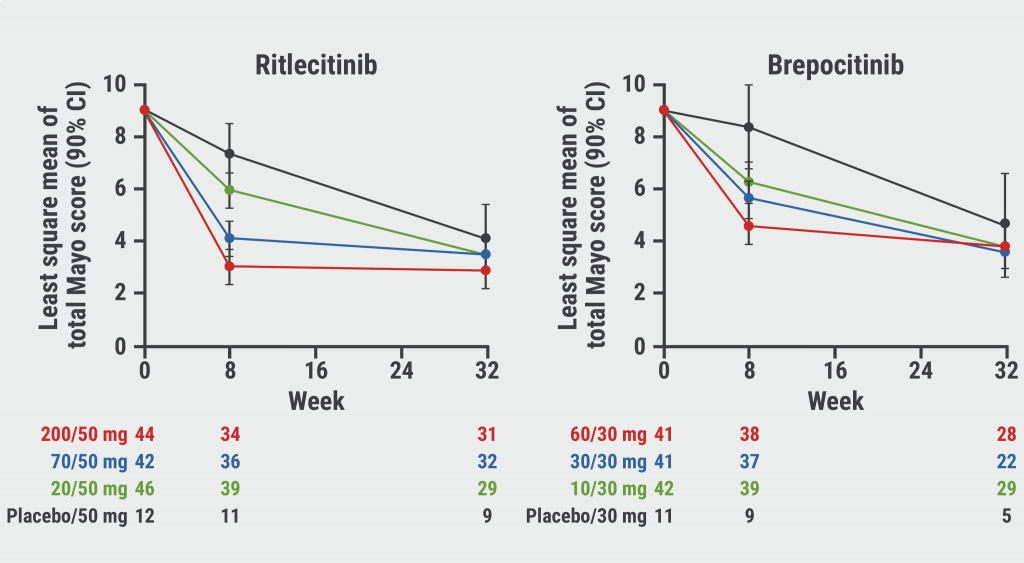Dr Gustavo Drügg Hahn (McGill University Health Center, Canada) and colleagues conducted a systematic review and meta-analysis to study the safety profiles of biological therapies in elderly patients with IBD [1]. In total, 17 studies assessing the safety profiles of anti-TNFs, vedolizumab, and ustekinumab in participants with IBD aged 60 years or older were included in the systematic review.
No significant difference was detected in the rate of AEs for participants treated with anti-TNFs, vedolizumab, or ustekinumab (mean rate 11.3/100 patient-years; P=0.11). In addition, the infection rate associated with the use of these therapies was comparable (mean rate 9.5/100 patient-years; P=0.56). Participants on anti-TNFs displayed significantly more infusion/injection-related AEs than participants treated with vedolizumab or ustekinumab (P=0.02). In addition, participants treated with vedolizumab/ustekinumab demonstrated higher malignancy rates (P=0.01), though this might be caused by a selection bias of the physician to be more likely to start vedolizumab or ustekinumab in patients with a high risk for malignancy based on the beneficial safety profiles of the new biologicals reported in the clinical trials. The systematic review included 2 studies that directly compared the safety and efficacy of anti-TNFs and vedolizumab, showing similar efficacy and safety of these agents in elderly participants with IBD [2,3].
- Drügg Hahn G, et al. Safety of Biological Therapies in Elderly IDB: a Systematic Review and Meta-analysis. P318, ECCO 2022, 16–19 February.
- Adar T, et al. Aliment Pharmacol Ther. 2019;49(7):873–879.
- Pable BS, et al. Dig Dis Sci. 2021 Jul 15. Doi: 10.1007/s10620-021-07129-5.
Copyright ©2022 Medicom Medical Publishers
Posted on
Previous Article
« Early biologic therapy induces larger effect than delayed treatment in Crohn’s disease Next Article
Vaccination tool associated with improved vaccination coverage in IBD »
« Early biologic therapy induces larger effect than delayed treatment in Crohn’s disease Next Article
Vaccination tool associated with improved vaccination coverage in IBD »
Table of Contents: ECCO 2022
Featured articles
Upadacitinib maintenance therapy delivers sustained improvements in active ulcerative colitis
Novel Treatment Modalities
Guselkumab shows encouraging safety and efficacy in ulcerative colitis
Guselkumab maintenance therapy achieved high efficacy rates in Crohn’s disease
Mirikizumab efficacious for active ulcerative colitis
Risankizumab more efficacious in colonic than in ileal Crohn’s disease
Guselkumab plus golimumab promising combination for ulcerative colitis
Combined endpoint may support personalised medicine in ulcerative colitis
Filgotinib seems promising for perianal fistulising Crohn’s disease
Upadacitinib maintenance therapy delivers sustained improvements in active ulcerative colitis
Upadacitinib counters extraintestinal manifestations in ulcerative colitis
Deucravacitinib does not meet primary endpoint for ulcerative colitis
Head-to-Head Comparisons
Anti-TNFs versus vedolizumab and ustekinumab in Crohn’s disease
Upadacitinib appears to be an efficacious therapy for moderately-to-severely ulcerative colitis
Subcutaneous infliximab versus subcutaneous vedolizumab in IBD
Vedolizumab outperforms anti-TNF in biologic-naïve ulcerative colitis
Short-Term and Long-Term Treatment Results
Ozanimod treatment shows maintained response in ulcerative colitis
Stopping infliximab but not antimetabolites leads to more relapses in Crohn’s disease
Vedolizumab first approved therapy for chronic pouchitis
VEDOKIDS: Vedolizumab seems effective in paediatric IBD
Primary endpoint of 5-hydroxytryptophan for fatigue in IBD not met
Specific Therapeutic Strategies
Positive outcomes with therapeutic drug monitoring during infliximab maintenance therapy
Segmental colectomy beneficial over total colectomy in Chrohn’s disease
Modified 2-stage ileal pouch-anal anastomosis versus 3-stage alternative
Similar results for different corticosteroid tapering protocols in UC
Miscellaneous Topics
Lessons from the COVID-19 pandemic for IBD management
AI model distinguishes between histologic activity and remission in ulcerative colitis
Multi-Omic and dietary analysis of Crohn’s disease identifies pathogenetic factors
Novel classification system for perianal fistulising Crohn’s disease
Vaccination tool associated with improved vaccination coverage in IBD
Comparable safety profiles of biological therapies in elderly patients with IBD
Early biologic therapy induces larger effect than delayed treatment in Crohn’s disease
RESTORE-UC: No better outcomes with FMT superdonors than with autologous stools
Related Articles

December 1, 2022
Start low with brepocitinib and ritlecitinib in UC
© 2024 Medicom Medical Publishers. All rights reserved. Terms and Conditions | Privacy Policy
HEAD OFFICE
Laarderhoogtweg 25
1101 EB Amsterdam
The Netherlands
T: +31 85 4012 560
E: publishers@medicom-publishers.com

